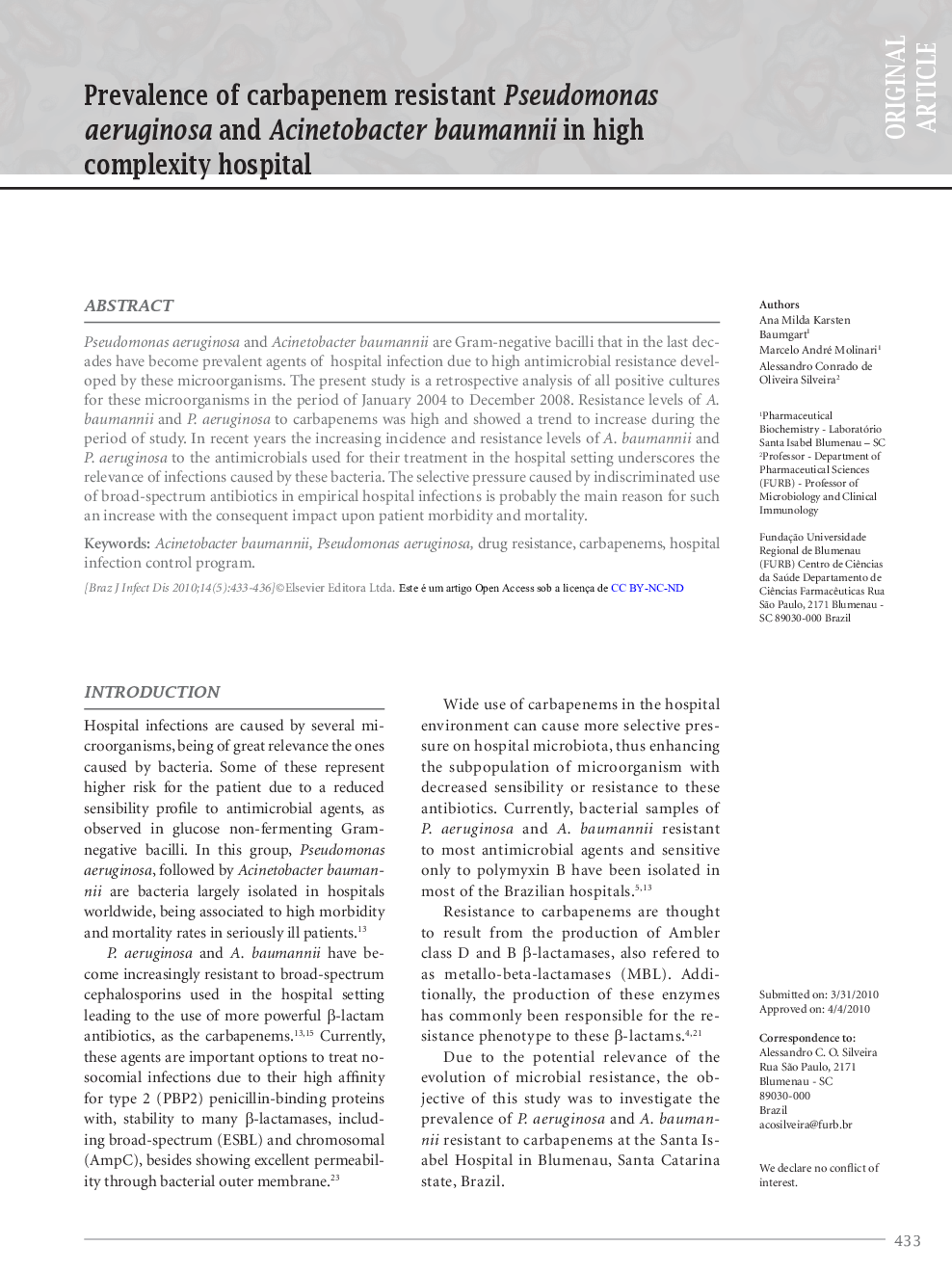| Article ID | Journal | Published Year | Pages | File Type |
|---|---|---|---|---|
| 3344628 | The Brazilian Journal of Infectious Diseases | 2010 | 4 Pages |
Pseudomonas aeruginosa and Acinetobacter baumannii are Gram-negative bacilli that in the last decades have become prevalent agents of hospital infection due to high antimicrobial resistance developed by these microorganisms. The present study is a retrospective analysis of all positive cultures for these microorganisms in the period of January 2004 to December 2008. Resistance levels of A. baumannii and P. aeruginosa to carbapenems was high and showed a trend to increase during the period of study. In recent years the increasing incidence and resistance levels of A. baumannii and P. aeruginosa to the antimicrobials used for their treatment in the hospital setting underscores the relevance of infections caused by these bacteria. The selective pressure caused by indiscriminated use of broad-spectrum antibiotics in empirical hospital infections is probably the main reason for such an increase with the consequent impact upon patient morbidity and mortality.
